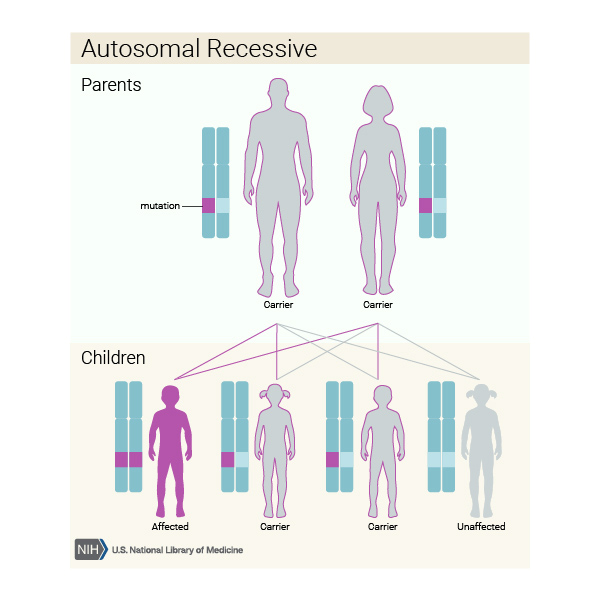But dont worry youre not alone. Approximately 65 percent of the human population has a reduced ability to digest lactose after infancy.
 Lactose Intolerance Medlineplus Genetics
Lactose Intolerance Medlineplus Genetics
People with lactose intolerance cannot digest the sugar found in dairy products which can lead to some unpleasant symptoms.

Is lactose intolerance hereditary. This condition is most common in Finland where it affects an estimated 1 in 60000 newborns. Primary lactase deficiency Primary lactase deficiency is the most common cause of lactose intolerance worldwide. A quick and cheap genetic test will soon be able to identify people with lactose intolerance.
When people ask me if lactose intolerance is genetic I have to say yes and no. Is lactose intolerance genetic. All babies drink milk but after theyre weaned some lose the ability to drink milk without feeling ill.
Congenital lactose intolerance is an extremely rare genetic disorder in which little or no lactase is made from birth. According to the National Digestive Diseases Information Clearinghouse primary lactose deficiency could very well be genetic. The condition which is also called lactose malabsorption is usually harmless but its symptoms can be uncomfortable.
Most people are born with the ability to digest lactose the major carbohydrate in milk and the main source of nutrition until weaning. According to recent research genetics may play a role in your inability to digest dairy products. Primary lactase deficiency develops when your lactase production decreases as your diet becomes less reliant on milk and dairy products.
Secondary lactose intolerance may arise with other disorders of the small bowel such as gastroenteritis inflammatory bowel disease and coeliac disease. Your intolerance to lactose could be genetic. Its a genetic disorder and both parents.
This is known as lactose intolerance. Approximately 75 of the worlds population loses this. As a result they have diarrhea gas and bloating after eating or drinking dairy products.
This is due to a deficiency of activity of the enzyme fructose-1-phosphate aldolase resulting in an accumulation of fructose-1-phosphate in the liver kidney and small intestine. The loss of the enzyme that breaks down lactose is a result of our genes. In people with HFI ingestion of fructose fruit sugar and sucrose cane or beet sugar table sugar causes severe hypoglycemia low blood sugar and the build up of dangerous substances in the liver.
Hereditary fructose intolerance HFI is a metabolic disease caused by the absence of an enzyme called aldolase B. When a baby stops breastfeeding the genetic response is to decrease the expression of the LCT gene which provides instructions for making lactase in the small intestine. Whether the enzyme lactase disappears and when this takes place varies from person to.
It is observed in nearly 75 of the world population and is an inherited autosomal recessive trait with incomplete penetrance. When looking at genetic population frequencies the allele frequency represents persistence of the lactase enzyme as opposed to a decrease in lactase function intolerance. People with lactose intolerance are unable to fully digest the sugar lactose in milk.
Yes in one sense the problem is caused by our genes. This type of lactase deficiency is caused by an inherited genetic fault that runs in families. Is Lactose Intolerance Genetic.
Approximately 75 of the worlds population loses this ability at some point while others can digest lactose into adulthood. The short and simple answer to this particular question is yes Scientific experiments and case studies have proven that lactose intolerance is in most cases genetic. The onset of primary lactose intolerance the most common type is typically in late childhood or early adulthood but prevalence increases with age.
Congenital lactose intolerance is very rare and happens when no lactase or a very small amount of it is produced by the small intestine from birth. Most people are born with the ability to digest lactose the major carbohydrate in milk and the main source of nutrition until weaning. The most common type of lactose intolerance primary lactose intolerance is the result of an inherited genetic trait that runs in families.
In primary lactose intolerance the genetic variant that promotes the production of lactase is missing and abdominal symptoms may develop after the ingestion of milk or milk products. Hereditary Fructose Intolerance HFI is an inherited inability to digest fructose fruit sugar or its precursors sugar sorbitol and brown sugar. Its incidence is unknown.
The test will be a boon for doctors since many people suffer from the condition without realising it. It is caused by SNPs in a regulatory element for lactase gene. Since its more common to be lactose intolerant in most populations the genetic condition for being able to tolerate lactose into adulthood is referred to as lactase persistence.
The decline of lactase expression or hypolactasia in intestinal microvilli after weaning is a normal phenomenon in mammals known as lactase deficiency. Lactose intolerance in infancy resulting from congenital lactase deficiency is a rare disorder. Inheriting lactose intolerance The ability to digest milk or milk products is inherited from our parents.